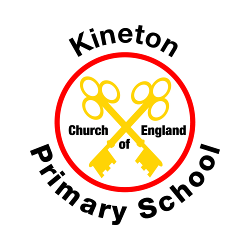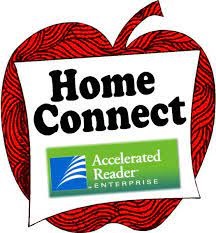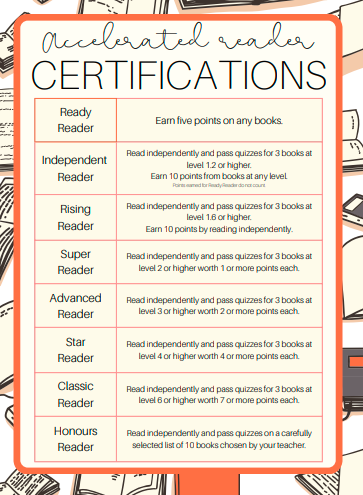
Kineton C of E Primary School
Reading
Reading is at the heart of all learning. It is a window to the world, and beyond. At Kineton Primary School, we instil a love of reading and active development of vocabulary through exposure to a range of high quality texts.
Accelerated Reader
A Parents Guide to AR
Take an AR Quiz
Check a book's ZPD on The AR Book Finder
Here you can check if the book you are reading is on Accelerated Reader and check the books ZPD level.
Check on your progress towards goals on Home Connect
View your progress towards reading goals and reader certification, and view all books that your child has read and quizzes your child has taken.
By selecting the librarian option as you enter the page, you can request books to be added to Accelerated Reader by clicking on the suggest quizzes (top right corner), this takes you to a quick form to fill out.
Supporting Reading at Home
Daily reading has a significant impact on attainment Children who read daily are four times more likely to read above the expected level for their age.
5 reasons why reading with your child is essential.
-
Reading with your child is the most important thing you can do to help your child succeed in school.
-
Books expose your child to new words that help build language and understanding.
-
Reading is fun and helps build relationship.s
-
The impact lasts a lifetime. Confident readers are healthier and have better job opportunities.
-
Reading with children shows it is important, values and likely to inspire them to read themselves.
Early Readers (Pupils reading RWI books)
Children will bring home three different types of books each week.
-
Read Write Inc Books When children bring home the book they have been reading in their phonics lessons, we expect they will be able to read them without support as they have been taught for accuracy, fluency and understanding. Children should read this in their practised 'story teller' voice. This is an opportunity for them to show off their super reading skills to you.
-
Read Write Inc Book Bag Books Everytime your child brings home a RWI book home, they will bring a Bookbag Book that has many of the same words but in a new story. They may need a little more guidance to ensure that they use their sounds carefully.
Listen to your child read the same Storybook again and again until they become confident and speedy:
-
1st read - focus on accuracy (decoding)
-
2nd read - read more quickly (fluency)
-
3rd read - develop understanding of what they have read (comprehension)
Encourage them to use 'special friends', 'Fred Talk', 'read the word'.
Discuss the story and encourage their storyteller voice. A good way to do this is by modelling reading, changing your voice when someone talks or something interesting happens
-
Sharing Books You can teach your child about reading by reading to them. Therefore we also send home sharing/library books that are above the child's current level of decoding. By reading with your child, it will give them an opportunity to be exposed to language and storylines they may not otherwise come across.
Independent reading (Pupils reading AR books)
Children will bring home books they have selected matched to their reading ability.
The stages of learning to read happen in the following sequence:
Fluency -> Pace -> Expression -> Comprehension
We are aiming for children to use reading as a tool to unlock new knowledge and skills so comprehension is our ultimate goal!
Before Reading If it's the first time your child has read the book, look at the cover and title with them to predict what you think the book might be about. Make links to other books with similar themes, the same characters and/or similar authors/illustrators. Give them time to flick through the book and read the blurb.
During Reading Encourage children to track the words with their finger or use a reading ruler if this helps them. Help children to recode (read) the words and ask them about the meaning of more challenging words.
Afterwards Talk with your child about the content of what they have read. Use the Reading Prompt Questions at the back of the learning log to help cover the different skills.
Shared Reading
Whatever stage your child is at, it is valuable for them to hear others reading stories. It supports their development of expression and intonation. An audiobook is a wonderful way to do this or have a family book you dip into is also a special way to celebrate reading together.



